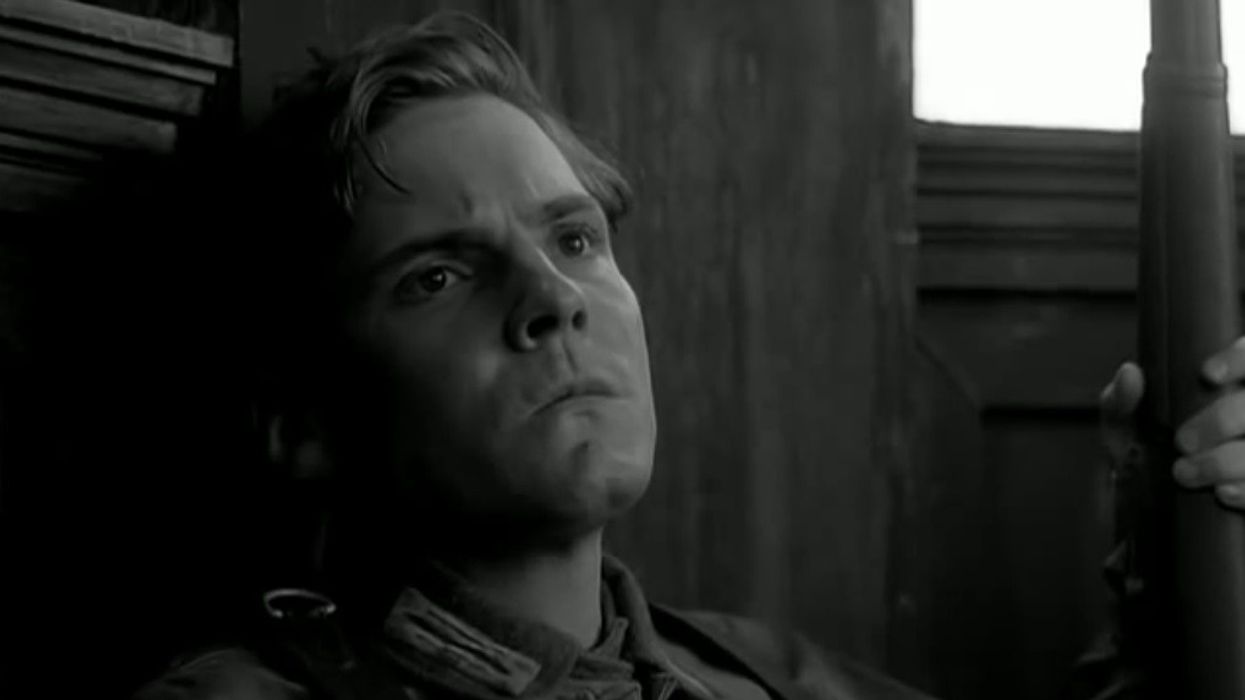Do You Know Who Directed the Film-within-a-Film for 'Inglourious Basterds'?
Who directed the film-within-a-film that served as a huge plot point in Tarantino's Inglourious Basterds?

Quentin Tarantino has established himself as an auteur of alternate renditions of historical events. His tendency to shift prominent historical moments takes audiences down the rabbit holes of “what if's,” as the director’s perspective can send the history we know into a frenzy with simple changes.
While history revision in cinema is not a new thing by any means, Tarantino’s Inglourious Basterdsshowcases the filmmaker's storytelling talent as he juggles several stories perfectly and finds a balance between humor and terror in the context of WW II. The director further established his storytelling abilities through his direction, but not all of Inglourious Basterds was directed by Tarantino.
In the film, everyone, including Hitler, goes to the movies to watch a movie. The film, Stolz der Nation (translated to English as Nation’s Pride), is a Nazi propaganda film, which upholds a time-honored Hollywood tradition of playing around in the film’s world while maintaining distance from any previously existing work.
With a tight deadline, Tarantino couldn’t direct Stolz der Nation, so who did?
Who Directed Stolz der Nation in Inglourious Basterds?
Outside of playing Donny “The Bear Jew” Donowitz in Inglourious Basterds, All the Right Movies revealed that Eli Roth directed the film-within-the-film, Stolz der Nation.
The short film is played at a local Parisian movie theater near the climax of the film. Due to time constraints and demands for Tarantino’s attention to be elsewhere, the director asked fellow director and actor Roth to direct the miniature movie. Roth, known for his 2003 debut Cabin Fever and the Hostel films, had more filmmaking experience than anyone else on set and could easily complement Tarantino’s specific and unique tone in Inglourious Basterds.
Knowing that Tarantino was on a tight deadline to finish the film, Roth offered his directorial services for second-unit pickup shots. With this offer in mind, Tarantino asked Roth to direct the short film that depicted the story of sniper Frederick Zoller (Daniel Brühl), who is seen as a hero by the Nazi administration.
“I told Quentin, 'I’m going to be in Berlin for six months and you’re trying to get this thing ready for Cannes, if you need anything shot let me know,'” Roth told MTV in 2009. “‘I’m there, you have another director. I’ll pick up inserts, do a shot of a glass, I’m happy to do it. Uncredited and I’ll do it for free.'”

Roth agreed to the task and asked Tarantino if his brother, Gabriel Roth, could join him to direct a second camera. After Tarantino decided, the brothers started a mini-production for the short film.
In two days, the Roth brothers had a 130-camera setup that impressed Tarantino so much that he gave the brothers another day to work on the short film. On that third day, Roth got 50 more setups.
The total runtime of the short is five minutes and thirty seconds. While the short film feels like a snippet of a larger film, Roth and Tarantino always wanted it to feel like an incoherent short film that only allowed the audience an objective view of why the Nazis in the film are drawn to this specific scene.
Roth saw the irony of being a Jewish person making a Nazi-sanctioned film, telling MTV, “It was strange. I didn’t think I could be more offensive after Hostel 2… and there I was going, ‘More Swastikas! More Swastikas!’”
The fake Nazi propaganda film has a firm place as one of the great films within a film, serving as a plot device that sets up the climax. The entire emotional impact of the Nazis' enjoyment and the audience’s anticipation of their demise is a testament to good storytelling. Without Roth, the short film might not have had the same explosive impact that we expected from a Tarantino film.
What other films-within-a-film did you love? Let us know in the comments.
Source: All the Right Movies











